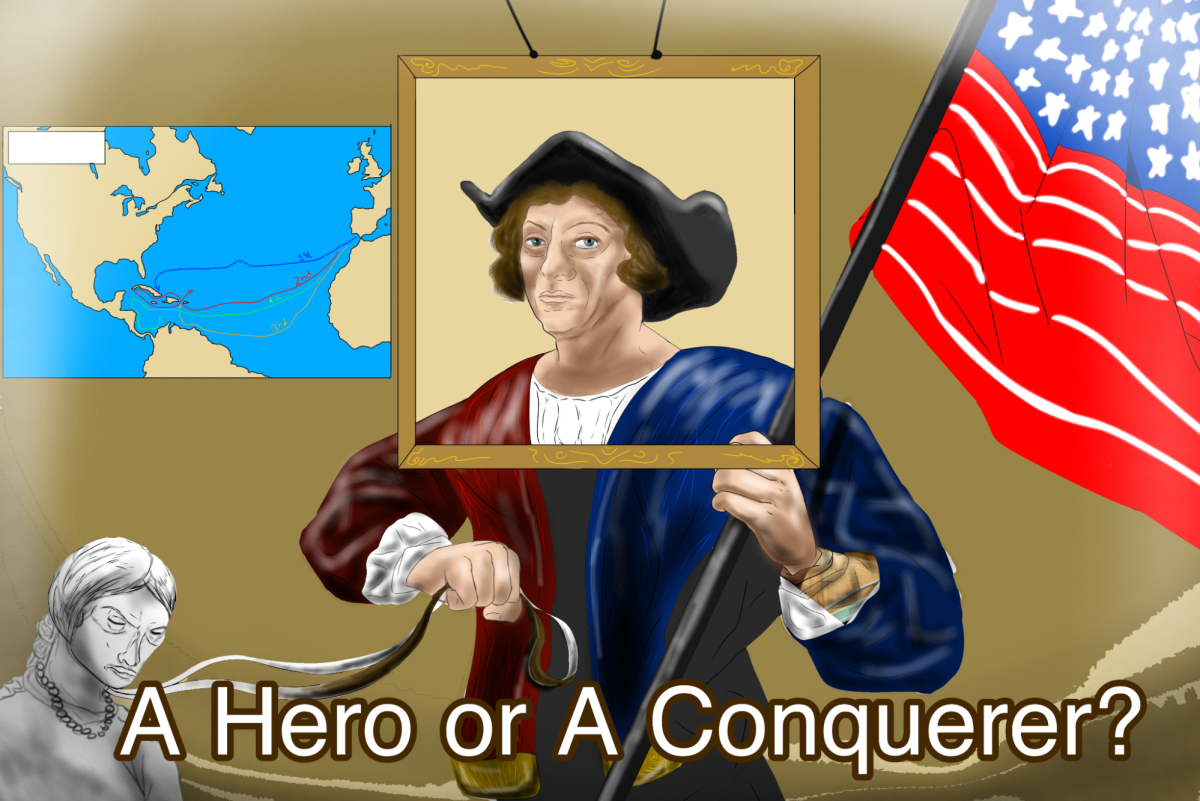
Jaewon Jang
Columbus Day, sometimes known as Indigenous Peoples' Day, is a federal holiday on Oct. 13. This article examined whether or not the Italian explorer deserved a federal holiday.
Many historical figures shape the world to be what it is today, some for the better and some for the worse. Celebrating these people leads us down a slippery slope we should not go on.
Christopher Columbus is one of the most controversial yet influential figures in history, and his impact remains heavily debated. Especially now, Columbus Day this Monday sparks conversation about the topic again.
Columbus was long seen as a heroic explorer who discovered the Americas and made significant contributions to the progress of mankind. However, his life and legacy are undeniably full of horrific acts of violence, slavery and torture against the indigenous people that lived on the land long before his arrival. According to History.com, “Columbus and his men enslaved many inhabitants of the West Indies and subjected them to extreme violence and brutality.” We should not devote a federal holiday to a man who did so many horrible things.
Columbus’s negative effect on the Americas went far beyond his own life, as his successors brought immense death and disease to the Native Americans by plundering native land and lives in a ruthless pursuit of glory and riches. As colonization continued to grow, people eventually began importing slaves from Africa, further expanding the international slave market. Columbus’s actions ultimately led to the rapid integration of slavery into the New World. Slavery has a history of immense pain, strife and division — Columbus’s fingerprints are all over it.
While Columbus did commit many atrocities, it is also true that he was one of the most impactful people in history, and the world would not be the same without him.
According to John Milner, TPHS Sociology and AP World History teacher, Columbus’s voyage set in motion trade that was truly global.
“When Columbus got here, it was pretty quick that he started sending letters back,” Milner said. “Immediately, the Spanish start coming in waves and implementing colonization and setting up large plantations to start growing cash crops for the kingdom to be sent in the Triangular Trade, [and] really all over the world.”
Although Columbus did accomplish many great things, his influence does not, in any way, make him a moral person, even by the standards of his time.
To a certain extent, it is true that Columbus’s journey paved the way for us to enjoy the lives we have today as Americans. However, he was also a barbaric, brutal and wicked savage. We should never forget that. There are two sides to the story, and we need to acknowledge both the accomplishments of Columbus and the suffering of the Native Americans.
Nevertheless, we should not have a federal holiday in his name.
There are countless historical figures, like Harriet Tubman, Paul Revere and Benjamin Franklin, who have changed the nation for the good. Unlike them, Columbus himself was not even an American. Yet they, along with countless others, do not have federal holidays dedicated to them. In addition, many of these American heroes did not kill or enslave to the degree to which Columbus did. This contrast creates a glaring moral inconsistency.
If we do not have federal holidays for these people, we should not have one for the man who not only led to the mistreatment of natives, but also the pioneer of importation of slaves in the Americas.
Too often we try to see history in black and white, simply either demonizing Columbus or validating him without recognizing the damage he did to the Native Americans. Instead of dedicating a holiday to this day, we should strive to promote peaceful and productive conversation in all places, at all times and between all groups of people. We should foster an environment where we can see through our differences and talk about history from the “other” side’s perspective.